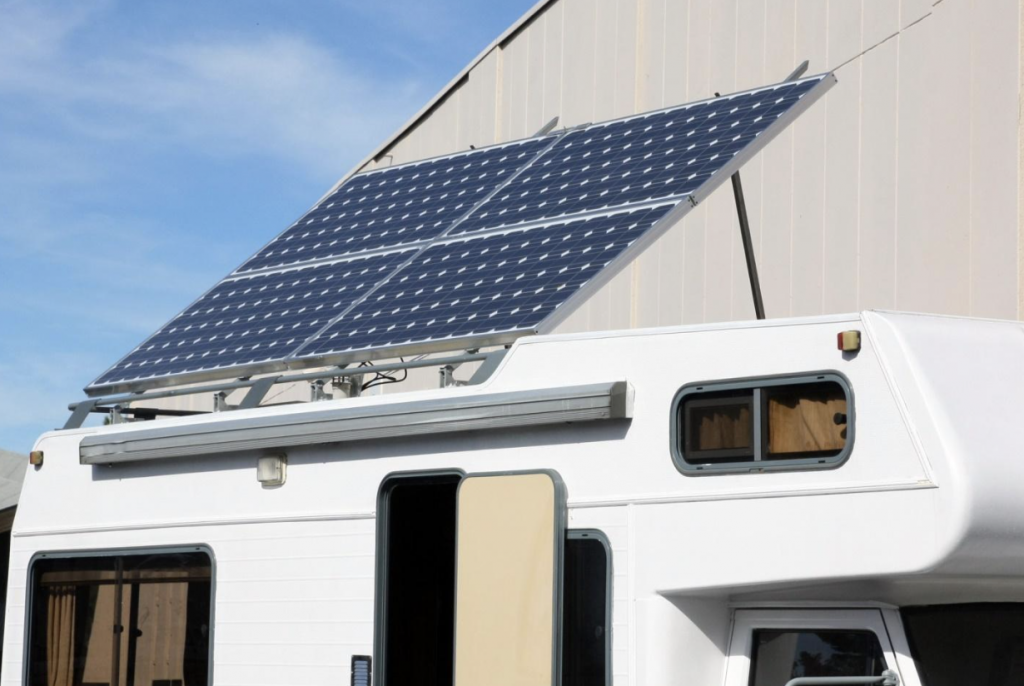
Studies show that roughly 4% of United States homes have solar panels installed. With so many people adopting clean energy options, there’s always more to learn from the advancing energy. How much does a solar panel battery cost, and is it worth the expense?
If you’re curious about installing a solar battery, we’re here to help. Read on for seven quick factors to pay attention to while exploring your battery options.
- Size and Power
One of the first things you’ll need to decide is the size and power of your array. Your array is directly linked with your solar battery, so the two are often considered in tandem.
Your solar array will generate energy depending on your home’s needs. Most people don’t generate the power necessary to power their home independently at all times.
Instead, a few panels can be installed to help reduce monthly costs and provide some independence. But if your panels provide a significant portion of your energy consumption, you’ll want a battery that can keep up.
Look at the power capacity of your battery to see whether it can hold enough charge to keep your home powered. If not, you may want to look into a different solar battery that has enough power to handle the task.
- Solar Battery Brand
Another important factor is the battery brand of your solar battery. As with anything else, big-name brands will often charge more.
That said, in the world of energy, products often charge more due to being more reliable. Your home’s power system is not a place to pinch pennies, and you shouldn’t hesitate to go for a premium brand.
Do some research on what companies around you are the most trustworthy brands. By relying on the best battery storage company, you can ensure you’re making a strong choice. We recommend speaking to other homeowners and focusing on customer reviews to see which brands are the most well-regarded.
- Net Metering
Another factor in your solar panel battery guide is to consider net metering. You’ll want to speak to your local utility company or look into state codes to see if net metering is available. But what is net metering, and why should it affect you?
When you generate electricity, you may generate more than your home is consuming. Typically, most of this energy will go into your battery system. But where will the power go once the battery is fully charged?
In most cases, the extra power will flow into your local grid. The energy is then used by the people around you. As such, your local utility company won’t need to generate and distribute that power to them.
Due to this, some utility companies offer credits to compensate you for the energy you’ve produced. These will lower your energy bill or otherwise provide a reward. Net metering is an effective way to slowly chip away at the cost of your solar panel battery.
- Solar Incentives
Another financial reward is your local solar incentives. In many areas, the state or city government will encourage you to switch to solar.
Solar power is significantly cleaner and reduces the emissions of the average home. Additionally, homes powered with solar energy won’t put as much strain on the local utility companies. These are both excellent benefits for your local government, making it so that they strongly prefer homes that switch to solar power.
The best way for them to encourage such a switch is by offering solar incentives. These are rewards – typically financial – that a governing body will give for making the switch.
For example, some governments may cover part of your solar panel battery cost. Others may provide you with a tax break or a utility credit.
Another strong incentive is the increased value to your home. If you choose to sell your home, you can significantly increase the price due to the solar battery system.
- Lower Bills
When you first look into solar panel battery cost, the numbers can feel staggering and overwhelming. However, one thing that those numbers won’t include is your lower power bills.
It’s no secret that solar panels will reduce your power bill. As you consume the power they generate, you’re keeping your utility bill lower. But once the sun goes down, your panels will stop generating power, meaning your home will consume the utility company’s energy.
With a solar battery, you’ll be able to use your home’s solar energy at all times. As a result, you’ll rarely be without your home’s generated electricity, keeping your bills lower. The money you save on your bills will eventually be higher than the cost of the battery system.
- Proper Upkeep
It isn’t solely benefits for solar batteries. One thing you’ll need to consider is the upkeep for the solar battery.
Some systems require more upkeep than others. As far as battery chemistry goes, systems that use lead acid batteries need frequent maintenance and attention. If you fail to replenish the water of a flooded lead acid system (FLA), they can break or otherwise malfunction.
Consider the cost and time investment of upkeep. These are crucial factors in knowing if solar panels and batteries are right for you.
- Environmental Benefits to Your Cost
Finally, you should consider how the environment will affect your battery. While the clean energy being produced is an enormous environmental benefit, it won’t affect your finances.
Instead, think of how your local environment affects your battery. Is it too hot for your battery to function? Do frequent storms threaten the integrity of your solar system?
Think of these factors and how they can impact your costs. Factoring in these issues is crucial to understanding how much you’ll ultimately spend.
Planning Your Solar Panel Battery Cost
Solar panel battery cost is affected by a plethora of rewards and incentives. While the upfront cost is high, the incredible savings and environmental benefits quickly outweigh the original sum. Consider issues like maintenance and environmental hazards to know if solar batteries are right for you.
For more information, be sure to browse our extensive site.












